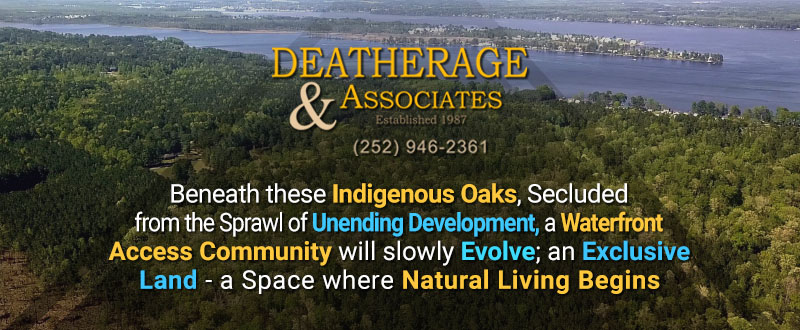Committed to the First Amendment and OUR Freedom of Speech since 2008
NCDHHS New Data On COVID-19 Vaccine Adoption and Public Perceptions
Press Release:
RALEIGH The North Carolina Department of Health and Human Services today released findings from recent public opinion research on COVID-19 vaccine risks, rewards and vaccination motivations across the state.
"With the public's health at stake, and health equity a priority, it was important for NCDHHS to understand where and how to focus outreach and education, and who our communities look to for trusted information," said NCDHHS Secretary Mandy K. Cohen, M.D.
Findings show a clear and welcome improvement in North Carolinians' attitudes related to COVID-19 vaccines. When compared with the same survey conducted last fall, vaccine risk perceptions have dropped significantly overall, while the perceived rewards of being vaccinated have risen. The number of people who would recommend COVID-19 vaccination to family and friends nearly doubled from 30% in November to 59% in March.
The most widely shared motivations to get vaccinated were the desire to get back to normal life and to protect oneself and others.
"The good news is that the vast majority of North Carolinians want to get vaccinated and will recommend to their family and friends that they do the same," Secretary Cohen said. "We are focused now on making vaccination easier for everyone."
The majority of survey respondents, nearly seven in ten North Carolinians, either have gotten vaccinated, have an appointment, or say they definitely or probably will. This is significantly higher than the six in ten who said they would last fall. Additionally, most unvaccinated respondents either do not care which vaccine they receive or feel that while some are better than others, the priority is to get vaccinated as soon as possible. Only 17% of respondents stated they will only take certain vaccines when it is their turn. Of those that do state a preference, most (56%) want the single-dose Johnson & Johnson vaccine.
NCDHHS launched You Have a Spot. Take Your Shot., the state's ongoing community outreach and engagement initiative, in December 2020. In addition to public opinion research, the program is also informed by community groups, faith-based leaders and others who support the state's Black, Latinx, American Indian and other historically marginalized populations, as well as rural communities. Findings from the research show that the top sources used to find information about getting a COVID-19 vaccine are NCDHHS, followed by friends and family, medical professionals and the county health department.
While efforts to drive vaccination among historically marginalized populations have had an impact, a gap remains among lower socio-economic populations. North Carolina is working to close the gap by providing more information on vaccine safety and effectiveness and, most importantly, greater access and support for making an appointment.
"Our public education campaign is focused on addressing questions about safety and effectiveness and encouraging people to get vaccinated. It's working, but we must continue to reach out to everyone in every corner of North Carolina to help people find their spot to get their shot and ensure equitable access to COVID-19 vaccines," Secretary Cohen said.
North Carolinians who have been vaccinated — or are in the vaccination pipeline — found it easy to get an appointment. Yet, half of those who have not been vaccinated but are eligible indicate difficulty with finding a convenient time and place when making an appointment. Other barriers to vaccine uptake include lingering concerns about potential side effects and not wanting to be a test case for the vaccine.
"We continue to work with community groups and organizations to help people make appointments and provide access to free transportation, services for people with disabilities and Spanish-language translation," Secretary Cohen said.
North Carolina was among one of the first states in the nation to conduct market research across all populations to inform its COVID-19 vaccine outreach and education. To date, the state has partnered with more than one thousand faith-based organizations, community leaders, groups and organizations.
People can find information on COVID-19 vaccines and make appointments HERE or by phone at 1-888-675-4567.
Go Back
RALEIGH The North Carolina Department of Health and Human Services today released findings from recent public opinion research on COVID-19 vaccine risks, rewards and vaccination motivations across the state.
"With the public's health at stake, and health equity a priority, it was important for NCDHHS to understand where and how to focus outreach and education, and who our communities look to for trusted information," said NCDHHS Secretary Mandy K. Cohen, M.D.
Findings show a clear and welcome improvement in North Carolinians' attitudes related to COVID-19 vaccines. When compared with the same survey conducted last fall, vaccine risk perceptions have dropped significantly overall, while the perceived rewards of being vaccinated have risen. The number of people who would recommend COVID-19 vaccination to family and friends nearly doubled from 30% in November to 59% in March.
The most widely shared motivations to get vaccinated were the desire to get back to normal life and to protect oneself and others.
"The good news is that the vast majority of North Carolinians want to get vaccinated and will recommend to their family and friends that they do the same," Secretary Cohen said. "We are focused now on making vaccination easier for everyone."
The majority of survey respondents, nearly seven in ten North Carolinians, either have gotten vaccinated, have an appointment, or say they definitely or probably will. This is significantly higher than the six in ten who said they would last fall. Additionally, most unvaccinated respondents either do not care which vaccine they receive or feel that while some are better than others, the priority is to get vaccinated as soon as possible. Only 17% of respondents stated they will only take certain vaccines when it is their turn. Of those that do state a preference, most (56%) want the single-dose Johnson & Johnson vaccine.
NCDHHS launched You Have a Spot. Take Your Shot., the state's ongoing community outreach and engagement initiative, in December 2020. In addition to public opinion research, the program is also informed by community groups, faith-based leaders and others who support the state's Black, Latinx, American Indian and other historically marginalized populations, as well as rural communities. Findings from the research show that the top sources used to find information about getting a COVID-19 vaccine are NCDHHS, followed by friends and family, medical professionals and the county health department.
While efforts to drive vaccination among historically marginalized populations have had an impact, a gap remains among lower socio-economic populations. North Carolina is working to close the gap by providing more information on vaccine safety and effectiveness and, most importantly, greater access and support for making an appointment.
"Our public education campaign is focused on addressing questions about safety and effectiveness and encouraging people to get vaccinated. It's working, but we must continue to reach out to everyone in every corner of North Carolina to help people find their spot to get their shot and ensure equitable access to COVID-19 vaccines," Secretary Cohen said.
North Carolinians who have been vaccinated — or are in the vaccination pipeline — found it easy to get an appointment. Yet, half of those who have not been vaccinated but are eligible indicate difficulty with finding a convenient time and place when making an appointment. Other barriers to vaccine uptake include lingering concerns about potential side effects and not wanting to be a test case for the vaccine.
"We continue to work with community groups and organizations to help people make appointments and provide access to free transportation, services for people with disabilities and Spanish-language translation," Secretary Cohen said.
North Carolina was among one of the first states in the nation to conduct market research across all populations to inform its COVID-19 vaccine outreach and education. To date, the state has partnered with more than one thousand faith-based organizations, community leaders, groups and organizations.
People can find information on COVID-19 vaccines and make appointments HERE or by phone at 1-888-675-4567.
- NC Department of Health and Human Services
- 2001 Mail Service Center
- Raleigh, NC 27699-2001
- Ph: (919) 855-4840
- news@dhhs.nc.gov
Latest Health and Fitness
|
The North Carolina Department of Health and Human Services is launching a Community Partner Engagement Plan to ensure the voices of North Carolina communities and families continue to be at the center of the department’s work.
Published: Tuesday, March 26th, 2024 @ 2:43 pm
By: Eastern NC NOW Staff
|
|
The North Carolina Department of Health and Human Services will host a live Spanish-language Cafecito and tele-town hall on Tuesday, Feb. 27, from 6 to 7 p.m., to discuss how to support and improve heart health as well as prevent and manage heart disease.
Published: Saturday, March 23rd, 2024 @ 8:56 pm
By: Eastern NC NOW Staff
|
|
Part of ongoing effort to raise awareness and combat rising congenital syphilis cases
Published: Saturday, March 23rd, 2024 @ 6:18 pm
By: Eastern NC NOW Staff
|
|
Recognition affirms ECU Health’s commitment to providing highly-reliable, human-centered care
Published: Wednesday, March 20th, 2024 @ 10:47 pm
By: Eastern NC NOW Staff
|
|
The North Carolina Department of Health and Human Services is launching a new Statewide Peer Warmline on Feb. 20, 2024. The new Peer Warmline will work in tandem with the North Carolina 988 Suicide and Crisis Lifeline by giving callers the option to speak with a Peer Support Specialist.
Published: Wednesday, March 20th, 2024 @ 1:29 am
By: Eastern NC NOW Staff
|
|
A subsidiary of one of the largest health insurance agencies in the U.S. was hit by a cyberattack earlier this week from what it believes is a foreign “nation-state” actor, crippling many pharmacies’ ability to process prescriptions across the country.
Published: Tuesday, March 5th, 2024 @ 1:12 am
By: Daily Wire
|
|
The John Locke Foundation is supporting a New Bern eye surgeon's legal fight against North Carolina's certificate-of-need restrictions on healthcare providers.
Published: Monday, March 4th, 2024 @ 11:08 am
By: Carolina Journal
|
|
The North Carolina Department of Health and Human Services today released the following statement on the Trails Carolina investigation:
Published: Sunday, March 3rd, 2024 @ 12:19 pm
By: Eastern NC NOW Staff
|
|
The North Carolina Department of Health and Human Services today released a draft of its 2024-25 Olmstead Plan designed to assist people with disabilities to reside in and experience the full benefit of inclusive communities.
Published: Sunday, March 3rd, 2024 @ 11:36 am
By: Eastern NC NOW Staff
|
|
The North Carolina Department of Health and Human Services will host a live fireside chat and tele-town hall on Tues., Feb. 20, from 6 to 7 p.m., to discuss how to support and improve heart health as well as prevent and manage heart disease.
Published: Saturday, March 2nd, 2024 @ 2:30 pm
By: Eastern NC NOW Staff
|
|
The North Carolina Department of Health and Human Services is investing $5.5 million into the FIT Wellness program, part of the North Carolina Formerly Incarcerated Transition Program in the UNC School of Medicine, to improve reentry services for the justice-involved population.
Published: Thursday, February 29th, 2024 @ 12:24 pm
By: Eastern NC NOW Staff
|
|
As of Feb. 1, 2024, 346,408 newly eligible North Carolinians are enrolled in Medicaid and now have access to comprehensive health care, according to the North Carolina Department of Health and Human Services’ Medicaid Expansion Enrollment Dashboard.
Published: Wednesday, February 28th, 2024 @ 11:22 am
By: Eastern NC NOW Staff
|
|
Controversy surrounds a healthcare provider’s decision to block parents from having access to their children’s prescription records.
Published: Wednesday, February 28th, 2024 @ 8:40 am
By: Carolina Journal
|

























